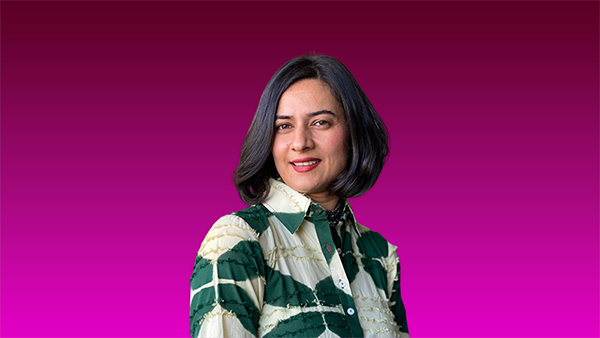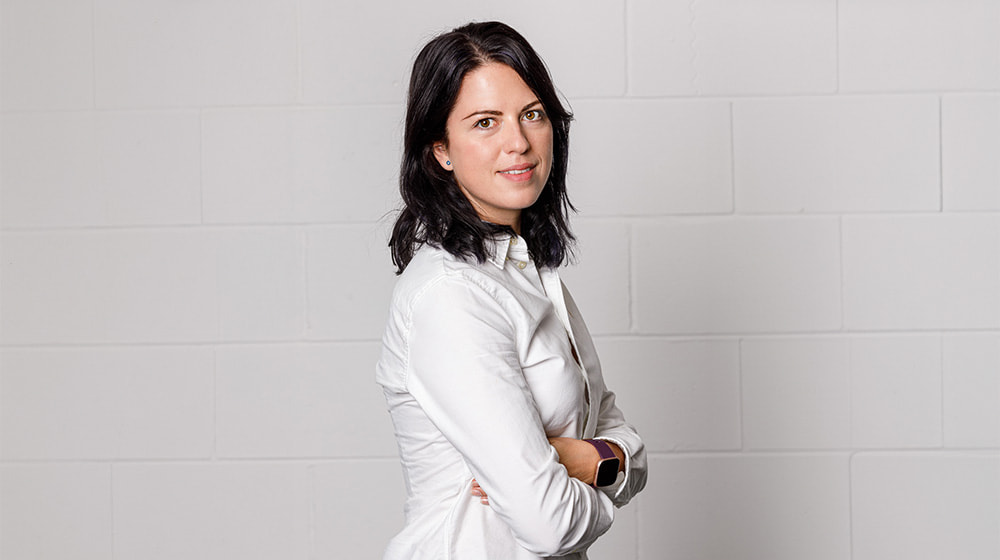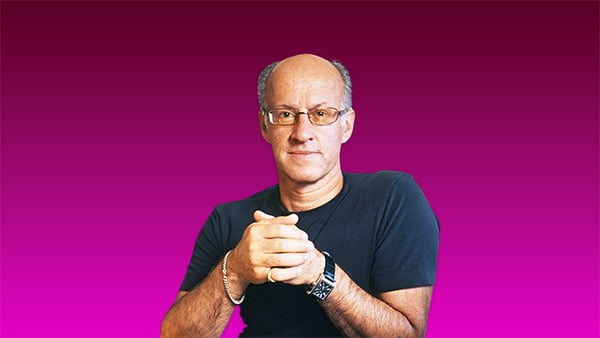AMA: Oana Jinga, co-founder of Dexory
We talked to Oana Jinga, the Chief Commercial Officer and co-founder of Dexory, a robotics tech company. Oana speaks candidly about the challenges of...
Manage your equity and shareholders
Share schemes & options
Equity management
Migrate to Vestd
Company valuations
Fundraising
Launch funds, evalute deals & invest
Special Purpose Vehicles (SPV)
Manage your portfolio
Model future scenarios
Powerful tools and five-star support
Employee share schemes
Predictable pricing and no hidden charges
For startups
For scaleups & SMEs
For larger companies
Ideas, insight and tools to help you grow

Wrapping up the latest season of FounderMetrics, Vestd founder and CEO Ifty Nasir talks with Shaili Chopra, the award-winning journalist, author, and founder of She The People and Gytree.
With decades of experience at the intersection of media, technology, and women's empowerment, Shaili unpacks what it means to build purpose-led platforms in a country of over a billion voices.
Check out the main takeaways below, or click here to listen to the full episode!
Looking back, I've had a long journey - 15 years in journalism with India's biggest broadcast networks, reporting on everything from the stock markets to terrorism.
Then I transitioned to digital media, creating two platforms centred on women's voices and wellbeing. Across everything I've done, one thread remains consistent: curiosity.
That curiosity led me through prestigious fellowships at the Aspen Institute and Stanford's Fisher Family Program, providing me with new ways to understand not just how to build things, but also how to create meaningfully.
Right now, I'm in that creative and learning space again. I'm energised and building a business that's unapologetically focused on women's health.
Early in my career, there were few women in Indian journalism. And particularly not in business or conflict zones. I reported on terrorism, scams, and wars. I was driven by ambition - something society often asks women to suppress.
But I've always believed that if you're not ambitious, how can you dream, break through, or even desire more?
That ambition and curiosity placed me at the heart of the 2008 Mumbai terror attacks. I was one of the first two journalists—and the first woman—to report live from the Taj Mahal Hotel. I'd just finished anchoring a business bulletin when I felt compelled to go find out what was happening. That sense of urgency landed me in what turned out to be one of India's biggest terror attacks.
I was live on NDTV and later seen on MSNBC and global channels. It was chaotic, dangerous, and nothing in my journalism training prepared me for it.
However, it taught me the essence of true reporting: to inform, yes, but never at the expense of someone's safety or dignity. That experience redefined my understanding of journalism and my responsibility as a storyteller.
Over time, I realised traditional broadcast journalism wasn't enough. The medium, by nature, thrives on moments, breaking news, and disruption—but not all stories explode. Some build quietly, with depth. And often, those are the stories of women.
When I looked around newsrooms and boardrooms, I noticed something stark: the absence of women's stories. Not just because they weren't being told, but because women weren't in those rooms where stories were being chosen. That was my trigger.
I created SheThePeople because I was done waiting for permission to tell women's stories. From the CEO to the girl next door, I wanted a space where women could speak, be heard, and be celebrated.
But it wasn't easy. Many women in the media thought I was deepening the gender divide. Journalism might seem gender-neutral at the entry point - but the higher you climb, the more resistance you face.
This platform wasn't just about spotlighting success. It was about reshaping how women see themselves and how society sees them. We asked women to raise their hands, to claim the mic, to own their stories. That's how change starts.
Today, SheThePeople reaches 4.5 million active users monthly across digital platforms. But we don't just count numbers - we measure engagement through the depth of connection. We create safe spaces around themes such as economy, literature, leadership, and health. We invite women into communities that reflect who they are and who they aspire to be.
The business is multifaceted, encompassing content, community, advisory services, and partnerships. Organisations, including brands, NGOs, and governments, turn to us for storytelling and insights. Whether it's Unilever, a public health initiative, or a VC looking for female founders in AI, we connect them to our trusted community.
I believe true sustainability comes when the platform no longer depends on the founder to function. From a website, we became a network. From a network, a platform. Today, SheThePeople is a movement - and that's how we measure our success: by the ability of the movement to outlive us.
My latest venture, Gytree, was born from SheThePeople - through conversations with women who told us what they needed and weren't getting. Gytree is a women's health platform focused on midlife and menopause. It's holistic: combining content, consultations, community, and nutrition.
I started it less than two years ago, backed by angel funding. We tested what women needed - was it a pill, a course, a coach? The answer: it was all of that, and more. Because menopause isn't a disease, it's a life stage that lasts 10 to 15 years. Women need support, information, empathy, and practical tools.
We offer nutrition products, guided programmes, and expert consultations. But more than that, we're raising awareness. Our research showed that 85% of Indian workplaces don't even acknowledge menopause. That's appalling when you consider that many women at this stage of life are in leadership roles.
If we want to increase the number of women in the workforce, we need to create environments that support them - emotionally, physically, and professionally. That's the infrastructure we're missing, and that's what Gytree is working to change.
Starting up wasn't glamorous. I was the face of Indian business television and walking away from that wasn't easy. It gave me a kind of hubris. But I told myself: You made the choice, now make it worthwhile.
In the early days, I tried hiring specialists for everything, but I quickly failed.
I had to learn the basics: social media, accounting, and GST law. I paid for online courses, grilled accountants and lawyers, and learned by doing. I wasn't looking for divas - I wanted hustlers who understood that journalism could be done with a smartphone and heart.
I was fortunate to have a few early champions - Anand Mahindra, Rajiv Anand, and Amitabh Kant - men who saw value in what I was building and didn't wait for it to be CSR-approved. However, I also want to be clear: women founders building solutions for women bring something uniquely powerful - lived experience. That has value.
To investors: if you're not looking at women-led businesses solving women's problems, you're missing tomorrow's growth markets. This isn't SaaS. It's slower to monetise, but once it does, it's transformative.
Most people still don't talk about menopause at home, let alone at work. But this isn't a "women's issue." Men live with women, raise daughters and work with women. They must be part of this conversation.
We're missing more than gender equity - we're missing infrastructure. Public, economic, and emotional. We talk about privilege in panel discussions, but even on a basic highway, I can't find a clean bathroom. How privileged are we really?
At Gytree, we're not just offering products. We're creating awareness, building community, and most importantly, empowering women to say: "I need help." That's the first step. The real success is when asking for help is no longer seen as a weakness, but a strength.
As we build into the future, let's stop 'othering' these conversations. Let's centre women's experiences not as exceptions, but as vital to how society functions and grows. Because we don't just need a better economy - we need a fairer one. And that starts with inclusion that's real, lasting, and rooted in empathy.
You'll find Shaili’s episode and more on all popular podcast platforms. Or watch the interview in full on YouTube - don't forget to like and subscribe!

We talked to Oana Jinga, the Chief Commercial Officer and co-founder of Dexory, a robotics tech company. Oana speaks candidly about the challenges of...

Founders of UK businesses are weighing up whether to return to the office; full-time, part-time, or as part of a hybrid working model. It’s a...

This time on FounderMetrics, Vestd founder and CEO Ifty Nasir meets Roger Saul, founder of Mulberry, one of the UK’s most iconic fashion brands.